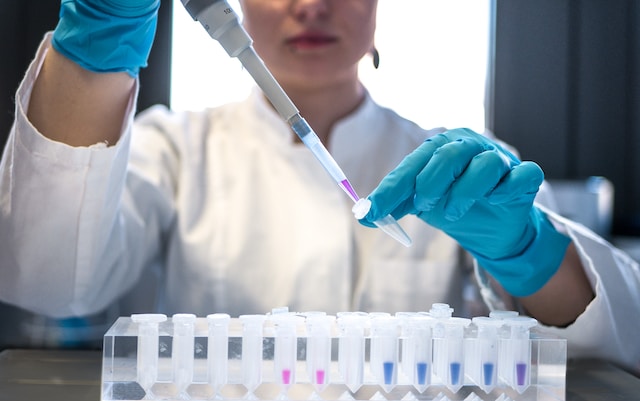With a growing population, scientists are looking for new, more sustainable ways to meet the global demand for food, fuel, drugs, and other manufactured goods. As an emerging discipline, synthetic biology (synbio) may hold the solutions for many challenges.
Experts are saying we have entered a synbio revolution. In the latest episode of the I am BIO Podcast, released October 31, they explain how this multidisciplinary technology can help us reach our sustainable goals.
What is synthetic biology?
Synthetic biology is a research field encompassing different techniques and approaches, aimed at (re)creating fully functional biological systems already found in nature, “from the smallest constituent parts possible, including DNA, proteins, and other organic molecules.”
Synbio can be applied in many areas, namely creating advanced biofuels, bio-products, renewable chemicals, bio-based specialty chemicals (pharmaceutical intermediates, fine chemicals, food ingredients), as well as the health care sector.
On top of its impact on innovation, synbio plays a major role in the economy too – currently contributing 5% of the U.S. GDP, or $900 billion.
How synbio can curb food insecurity
Plant technology company Benson Hill is using AI and machine learning to create nutrient-dense crops by tapping into plants’ natural genetic diversity. By using modern DNA synthesis technologies, the company is developing a new generation of protein crops, specifically soybeans and yellow peas.
According to Matt Begemann, head of gene editing and trait discovery at Benson Hill, crops like soybeans and yellow peas have historically been grown for yield. However, the company is seeking to unlock the crops’ potential and create food that is high in protein and low in anti-nutrients, such as gut-irritating oligosaccharides.
“By making better varieties that are focused not just on yield, but yield and quality, yield and higher protein, we can have a really big impact on our agriculture system,” Begemann says.
Synbio’s environmental impact
For Michael Koepke, Chief Innovation Officer at LanzaTech, synthetic biology means going “from idea to product faster, cheaper, and with greater precision.”
LanzaTech’s innovative approach focuses on capturing carbon and transforming it into sustainable aviation fuel, in addition to apparel manufacturing, cleaning supplies, and fragrances.
By working with the aviation and the fashion industry, LanzaTech has already mitigated over 300,000 tons of CO2, according to Koepke, who predicts that using their carbon recycling technology, the company can help mitigate about 500,000 tons of CO2, while manufacturing 300,000 tons of product.
“Synthetic biology and biology in general, I think can do things that no other human-made technology is able to do,” Koepke notes.
Synbio revolution through natural evolution
Through billions of years of evolution, biology has solved its problems, and it seems to have the answers we’re looking for. This was the concept used by Ginkgo Bioworks, a biotech company that created a platform used to do synbio at scale.
Jennifer Wipf, SVP at Ginkgo Bioworks, explains how the company’s AI-enhanced platform applies to real-world problems, such as the lack of availability of fertilizer.
As Wipf explains, some plants fix and absorb nitrogen on their own, while others don’t. In a collaboration with Bayer, Ginkgo Bioworks created a solution that taught microbes how to live on the surface of plants “to do that nitrogen fixation for them in the way that other plants have already learned how to do.”
In addition to synthetic fertilizers, Ginkgo’s work focuses on bio-based alternatives for other products too, such as biofuels and active pharmaceutical ingredients, or APIs.
“The synbio revolution could change nearly every facet of our lives,” says Biotechnology Innovation Organization (BIO) CEO Rachel King. “These companies are combining multiple scientific disciplines to power up their success in tackling some of our toughest challenges.”
Listen: Catch the new episode at www.bio.org/podcast or your favorite podcast app.




